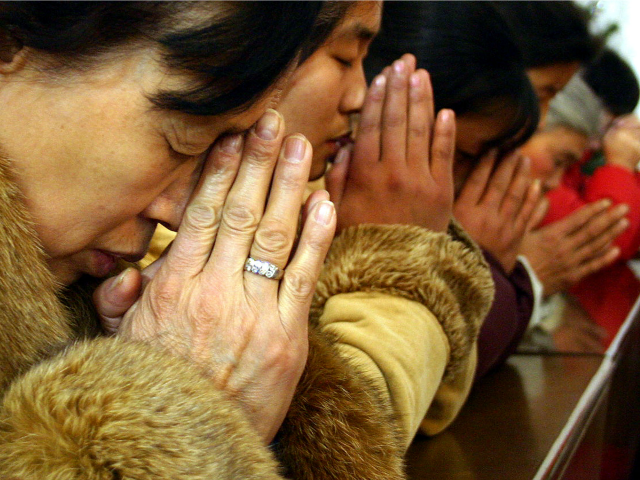The head of the Chinese Communist Party (CPC) Organisation Department, Chen Xi, warned in an opinion piece Thursday that some members of the party had shown sympathy towards “sorcery” and “Western concepts of the separation of powers,” a key “moral” failing to be eradicated.
The column appeared in the Chinese edition of Thursday’s People’s Daily, the official publication of the CPC. At press time, the article cannot be found on the English-language People’s Daily website.
“As a Marxist political party, our party has always regarded political standards as the primary criterion for selecting and employing people,” Chen wrote, noting that Mao Zedong had written that all communist officials must be “red and professionals.”
“Needless to say, since a certain time ago, the phenomenon of ignoring politics and weakening politics has become more prominent in the party,” Chen lamented, describing Communist Party loyalty as “unconditional” and urging CPC members to “put the party in the highest position in our hearts.”
“Some don’t believe in Marx and Lenin but believe in ghosts and gods; they don’t believe in ideals but believe in sorcery; they don’t respect the people but do respect masters,” he continued, according to a translation in Reuters. In addition to “sorcery,” Chen identifies “separation of powers” as a particular “wrong idea” that has threatened the vibrancy of communism.
Chinese state publications have endeavored to campaign against Western notions of a free society, insisting that anything less than full authoritarianism results in “chaos” and “instability.”
“Chinese-style democracy has never been healthier and China has absolutely no need to import the failing party political systems of other countries,” an article in Chinese state news site Xinhua argued last month.
Xi Jinping has also cracked down heavily on most religions, particularly Christianity, Uighur Islam, and Tibetan Buddhism. The Communist Party has always been a strictly atheist organization in China and elsewhere, and party members are not allowed to hold religious beliefs. Xi has implemented significant updates to laws on religion, however, meant to contain any thought or faith that could inhibit zealous loyalty to Xi.
The organization Freedom House published a report this year finding that at least 100 million Chinese people face “high” or “very high” levels of persecution for their religious faith. The state has particularly targeted Christians due to the rapidly growing popularity of the religion; some estimates show there may be more Christians in China than members of the Communist Party.
To limit the impact of Christian thought on Communist Party control, China has established programs to “Sinicize” religion – make it more Chinese by having Beijing-approved leaders “reform” the teachings of Jesus to conform to Marxism. Xi Jinping’s regime has done the same to Tibetan Buddhism, as that region’s Buddhist leaders play a prominent role in its separatist movement.
With Christians, however, Xi has taken his crackdown a step further, according to reports this week. Chinese government officials in rural areas have announced a plan to help “ignorant” rural Christians by forcing them to remove images of Jesus from their homes and replace them with Xi Jinping, in a move the communists claim will fight “superstition.” Under Xi, Beijing has for years endeavored to limit public displays of religion, forcing the demolition of churches and removal of crosses in many areas.
Chen is among the highest-ranking members of the Communist Party. According to his profile on the People’s Daily site, he is a member of the Political Bureau of the 19th Central Committee of the Communist Party as of the party congress in October. He also runs the party’s “Organizational Department.”

COMMENTS
Please let us know if you're having issues with commenting.